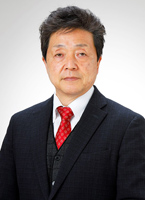Don’t imitate Yokozuna companies Hajime Ota (Professor of Doshisha University)

When I interviewed people working at a company in Silicon Valley called GAFA, I was taken aback by the surprising responses.
Contrary to their image of being ambitious and full of a spirit of challenge, their attitude toward work and the way he thought about his career were quite conservative. I expected that the mindset of the employees would be in contrast to Japan’s leading large companies, but they are surprisingly similar.
I call companies that are at the top of their industry “Yokozuna companies.” For employees, working at a Yokozuna company has two meanings.
First, because of their overwhelming position, they are treated well, have good co-workers, and are able to do high-quality work. Additionally, being an employee of the number one company earns people the respect of those around them, which satisfies their self-esteem and desire for approval.
Second, there are no other companies in the industry that are better than ours, so changing jobs is not an option in our minds.
As a result, they lack the motivation to take on big risks, both at work and in terms of career development.
No matter how innovative company is that dominates the world market, it is still a Yokozuna company from the perspective of its employees.
Yokozuna companies are easily targeted by other companies due to their high presence, but in a sense it can be said that they are special entities whose position is completely different from that of ordinary companies.
Therefore, just as a sumo wrestler cannot win even if he competes against a Yokozuna sumo wrestler, an ordinary company will not be able to win the competition if it operates in the same way as a top company in the industry, and it will not be of much use in terms of human resource management.
As I introduced last time, in a web survey of about 500 working people across the country, 66%, or almost two-thirds, answered that it would be better not to take on the risk of failure. (My book, “Japan: Better to Do Nothing,” PHP Shinsho, 2022).
Companies that feel a sense of crisis about this current situation are exploring the introduction of new personnel systems in order to bring out the challenging spirit of their employees and lead to innovation.
However, many of the employees who work at the Yokozuna companies they aim to have lack the desire to take on side jobs or side jobs, and are not very attracted to systems such as so-called “goodwill” and independence support. It’s not like the high-priced incentives are exciting. On the contrary, they are very particular about the guarantee that they can continue working at their current company for a long time and the company’s welfare system. For this reason, rapid personnel system reform is not only unnecessary, but may even have the opposite effect.
In contrast, many emerging companies and start-up companies that are making great strides have adopted unique systems to attract unusually talented people and encourage employees to take on challenges.
For Japanese companies that are in desperate need of a change in the mindset of their employees and revitalization of their organizations, there may be more to learn from “Ozeki companies” aiming for the top and “New Enemaku companies” that are on the rise, rather than yokozuna companies.
